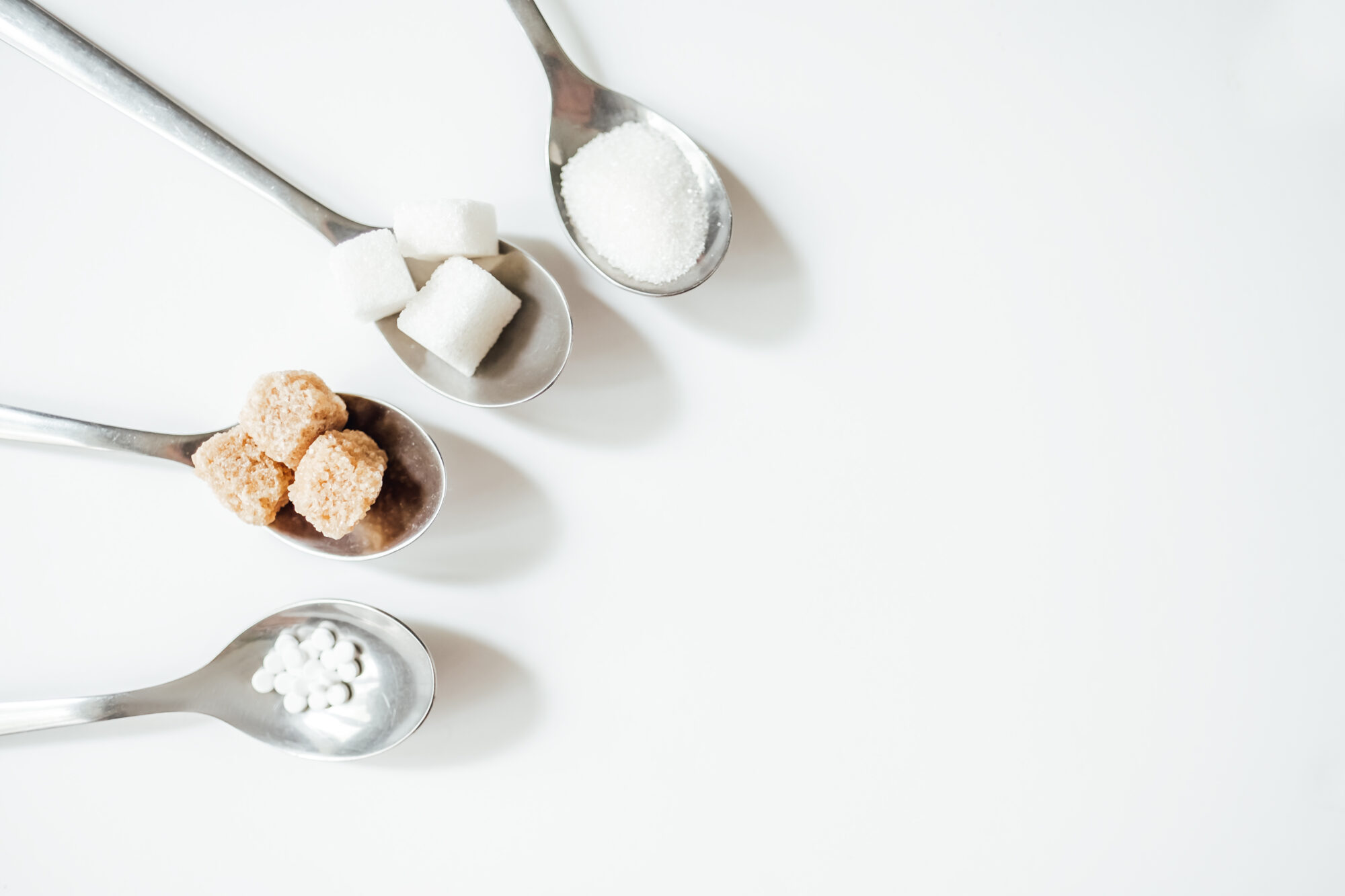Is Your Sugar Substitute Really a Good Choice?

There has been recent buzz in health news regarding sugar and sugar substitutes (also known as “fake” sugar). Often, people switch from regular sugar to artificial sweeteners to save on calories but is the switch healthy? More research is showing sugar substitutes may be more detrimental to our metabolic health than previously thought, leading to chronic illnesses, cardiovascular disease, obesity, and insulin resistance (a precursor to type 2 diabetes). Therefore, it is best to limit the amount of low calorie sweeter consumed. Often highly processed foods will contain a significant amount of sweetener, unbeknownst to the consumer. Everyday items such as bread, yogurt, condiments, and snack bars that may sound healthy, could have a significant amount of artificial sugar added in.
How much is too much? Per the American Heart Association, men should consume no more than 9 teaspoons (36 grams or 150 calories) of added sugar per day. For women, 6 teaspoons (25 grams or 100 calories) per day.
Food manufacturers are now required to list the amount of added sugar on products Nutrition Food Labels. When buying processed or packaged foods, scan this label, as well as the ingredients list, to inform yourself what you are consuming and perhaps there is a better alternative to choose. Just remember: artificial sweeteners and sugar substitutes come in a variety of names but sugar is sugar…no matter what name it is listed as (i.e.: maple sugar, coconut sugar, high fructose corn syrup, sucralose, stevia, allulose, erythritol).
If you are interested in reading more, I recommend this new, easy-to-read article titled “How Fake Sugars Sneak into Food and Disrupt Metabolic Health“.